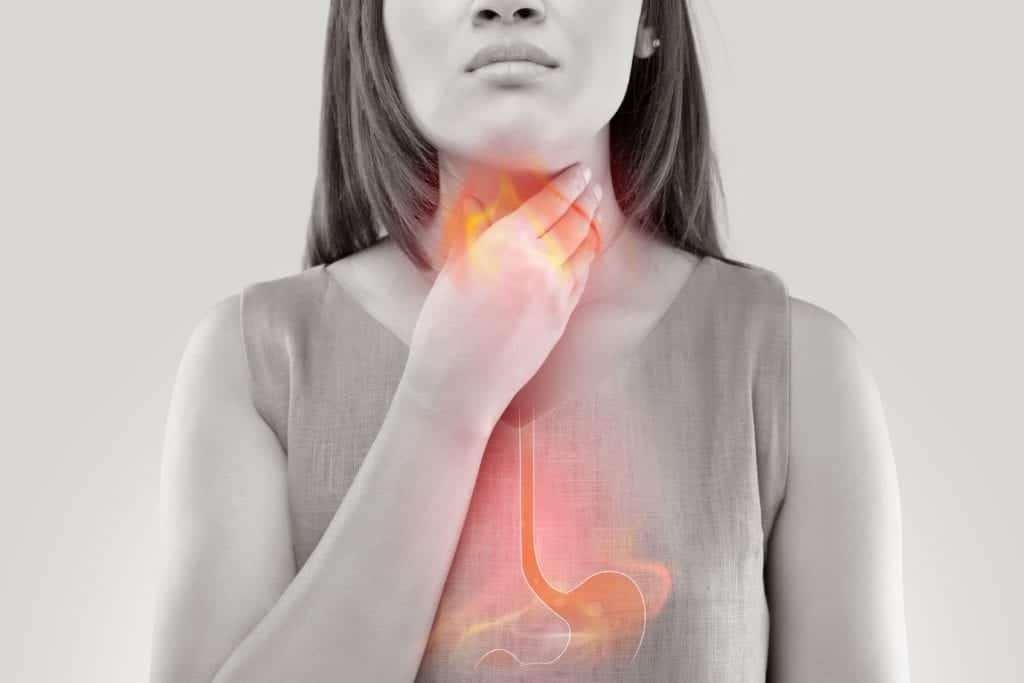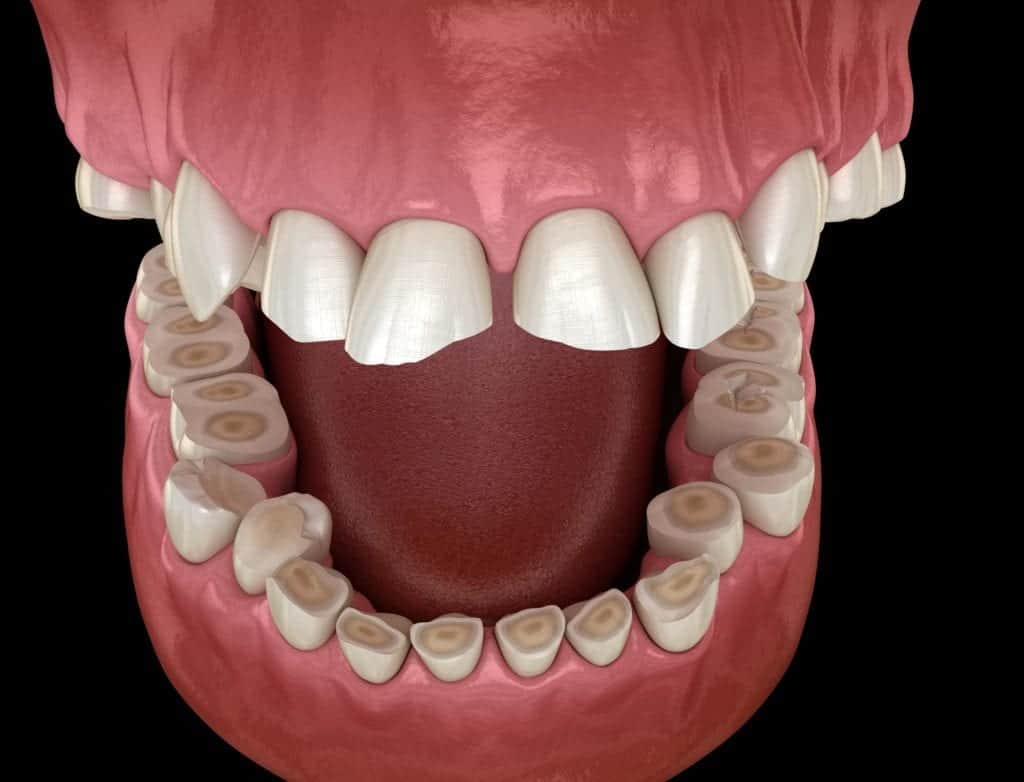While tooth decay and gum disease are two of the biggest threats to your oral health, there is another threat that you may or may not be aware of. However, unlike tooth decay or gum disease, this threat is not caused by bacteria in the mouth. Nevertheless, it can still be detrimental to your overall dental health and should be taken seriously. This threat is known as dental erosion and in order to understand its impact on your teeth, we must first divulge into the basics of tooth enamel.
Tooth enamel is the strongest substance in the human body and is composed of 96% minerals, specifically calcium and phosphorus. The molecules of these minerals are arranged in such a way that they are scientifically known as crystalline calcium phosphate, or hydroxyapatite. While being composed primarily of minerals allows tooth enamel to protect the interior dentin and pulp layers of the teeth, its mineral composition also means that it can demineralize.
The most common cause of demineralization is tooth decay, in which bacteria produce lactic acid that wears away the enamel. The early stages of demineralization often do not produce noticeable symptoms, however as the process continues individuals may notice tooth sensitivity, discoloration, or indents on the tooth’s surface.
Unfortunately, tooth decay is not the only thing to be concerned about. Dental erosion is the breakdown of enamel caused by reasons other than bacteria and is also cause for concern. Despite the fact that it is not caused by bacteria, dental erosion has the same symptoms of tooth decay with the addition of teeth that damage easily. Since dental erosion is not caused by bacteria, you are probably wondering what causes it. Here are a few causes of dental erosion:
Acidic Foods and Beverages
As you are probably aware, the foods and beverages we consume on a daily basis can strongly impact our overall and oral health. Acidic foods and beverages, in general, can cause your tooth enamel to erode over time. This is because these acidic foods and beverages increase the mouth’s acid concentration and acids are known for eroding surfaces. While you don’t necessarily need to avoid acidic foods altogether, it is important to manage quantity control when consuming rhubarb, berries, apples, citrus, fruit juices, or sodas with citric or phosphoric acid.
Stomach Acid

Not only is acid present in the various foods and beverages we consume, but it is also an integral part of our digestive system. However, stomach acid is only beneficial when it remains in the stomach. If it reaches the mouth through vomiting or from acid reflux conditions, it also increases the mouth’s acid concentration. Therefore, people who have medical conditions that cause frequent vomiting or acid reflux are at a higher risk of developing enamel erosion.
Dry Mouth
Your mouth regulates acid concentration through your saliva, so a decreased amount of saliva can mean an increased concentration of acid. Dry mouth can occur as a result of various medical conditions or as a side effect to certain medications.
Bruxism

Collectively, teeth grinding and clenching are known as bruxism. Bruxism is the only cause of dental erosion that does not deal directly with acid. Instead, bruxism places excess strain on the enamel that causes it to wear down faster. Unfortunately, this also makes the enamel more susceptible to further erosion caused by acid.
As you can see, dental erosion is another common threat to your teeth that can lead to similar symptoms and problems associated with tooth decay. Various factors such as acidic foods, stomach acid, dry mouth, and bruxism are all common causes of dental erosion. Over time, these factors will continue to wear down your enamel and weaken your teeth. As a result of dental erosion, your teeth are more likely to become decayed or damaged. Therefore, regular dental checkups can allow your dentist to help you prevent or minimize dental erosion before it is too late.

Dr. Dennis Laurich has been practicing dentistry for over 40 years. He received his DDS degree from the University of Michigan Dental School and regularly attends oral health care conventions to continue his dental education. This allows him to treat patients with the leading dental technology and methodologies. Additionally, he is a member of the American Dental Association, Michigan Dental Association, and the Detroit District Dental Society.
Dr. Dale Flanagin II is a distinguished professional in the field of dentistry, holding a Bachelor’s degree in Molecular Biology and Biotechnology as well as a Doctor of Dental Surgery degree. He is committed to improving the lives of others through his work, driven by a lifelong passion for helping people.





